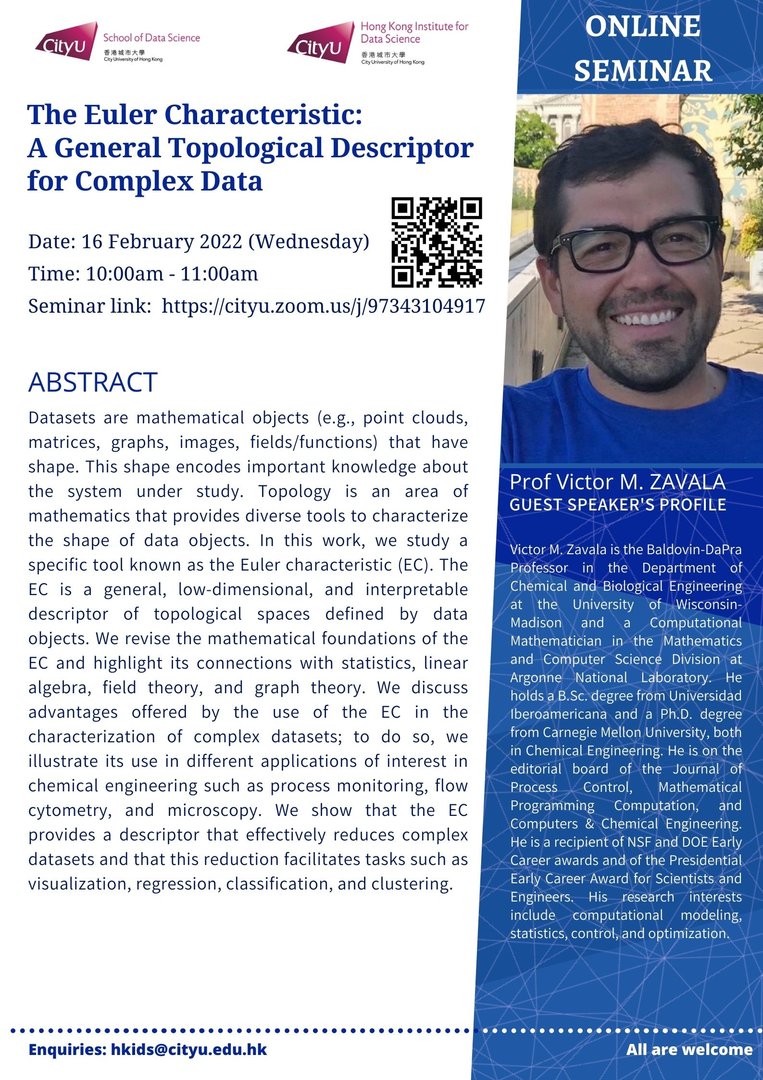
Datasets are mathematical objects (e.g., point clouds, matrices, graphs, images, fields/functions) that have shape. This shape encodes important knowledge about the system under study. Topology is an area of mathematics that provides diverse tools to characterize the shape of data objects. In this work, we study a specific tool known as the Euler characteristic (EC). The EC is a general, low-dimensional, and interpretable descriptor of topological spaces defined by data objects. We revise the mathematical foundations of the EC and highlight its connections with statistics, linear algebra, field theory, and graph theory. We discuss advantages offered by the use of the EC in the characterization of complex datasets; to do so, we illustrate its use in different applications of interest in chemical engineering such as process monitoring, flow cytometry, and microscopy. We show that the EC provides a descriptor that effectively reduces complex datasets and that this reduction facilitates tasks such as visualization, regression, classification, and clustering.
Speaker: Prof Victor M. ZAVALA
Date: 16 February 2022 (Wednesday)
Time: 10:00am – 11:00am
Poster: Click here
Latest Seminar
Biography
Victor M. Zavala is the Baldovin-DaPra Professor in the Department of Chemical and Biological Engineering at the University of Wisconsin-Madison and a Computational Mathematician in the Mathematics and Computer Science Division at Argonne National Laboratory. He holds a B.Sc. degree from Universidad Iberoamericana and a Ph.D. degree from Carnegie Mellon University, both in Chemical Engineering. He is on the editorial board of the Journal of Process Control, Mathematical Programming Computation, and Computers & Chemical Engineering. He is a recipient of NSF and DOE Early Career awards and of the Presidential Early Career Award for Scientists and Engineers. His research interests include computational modeling, statistics, control, and optimization.